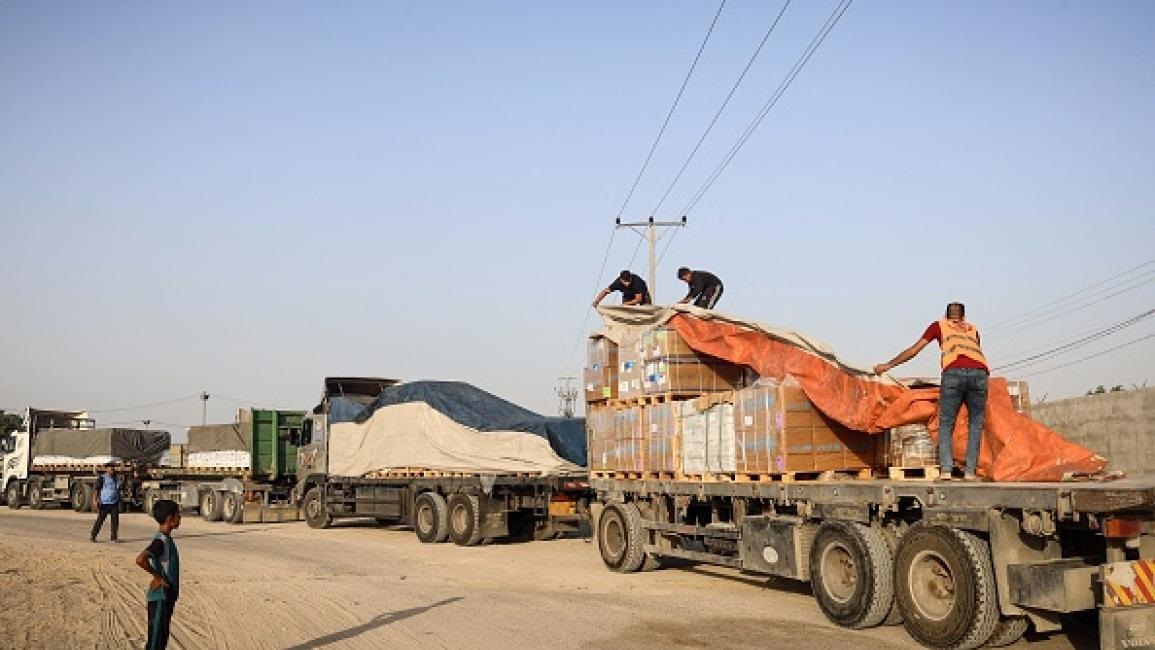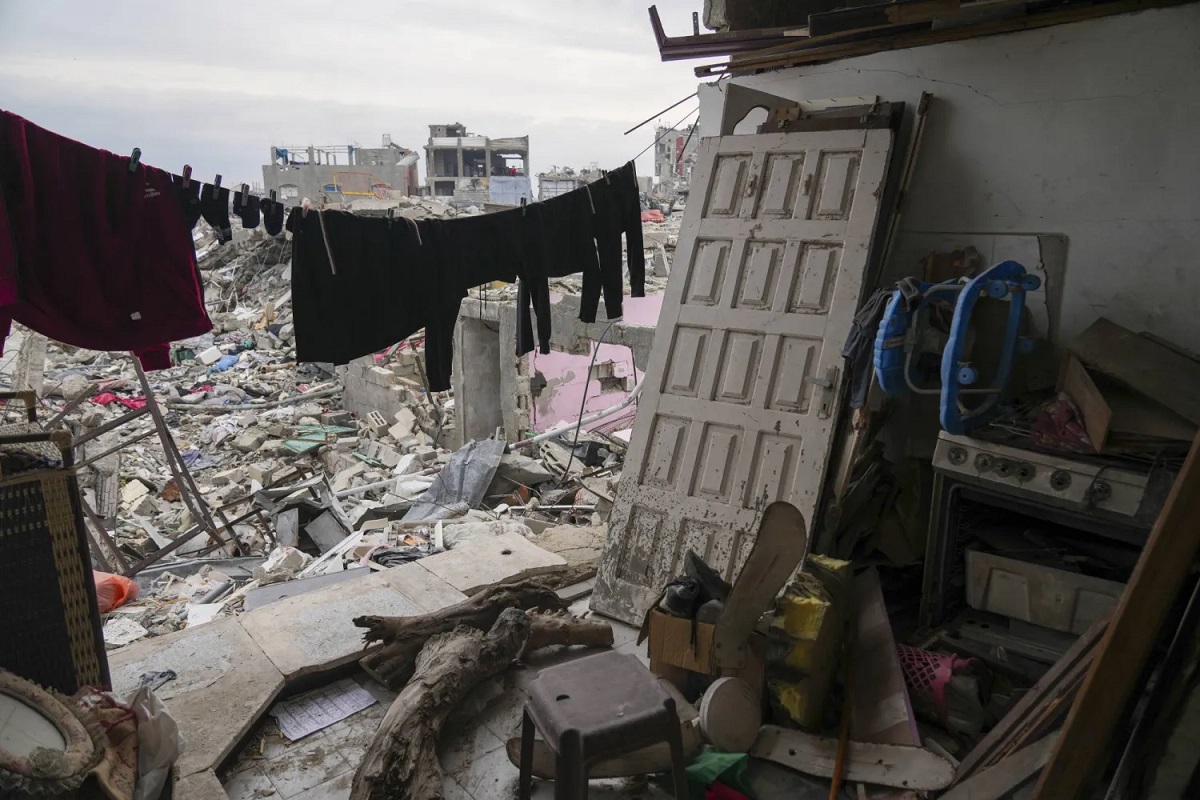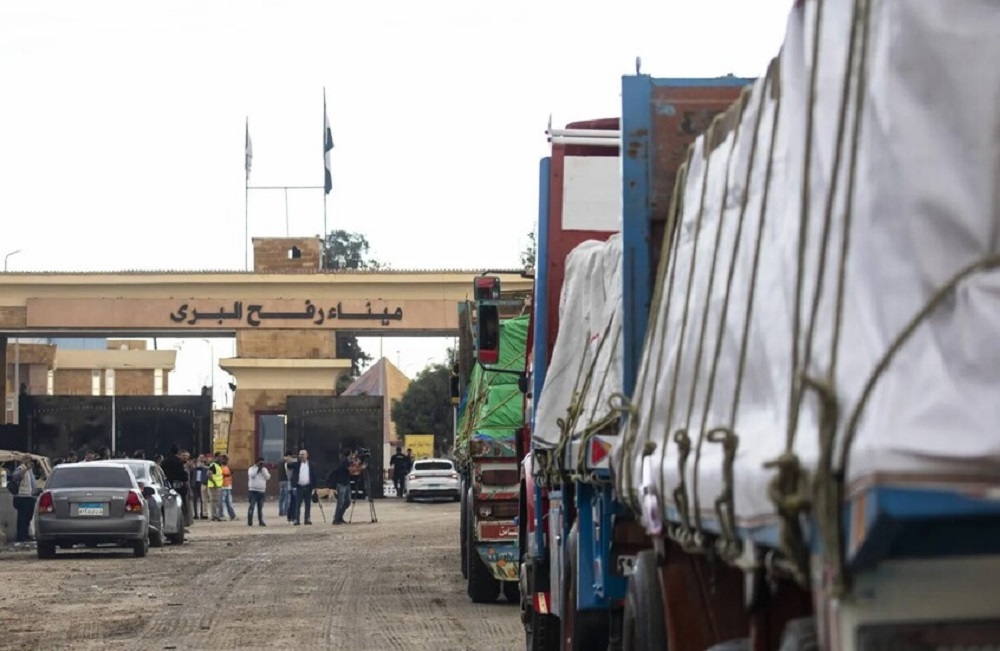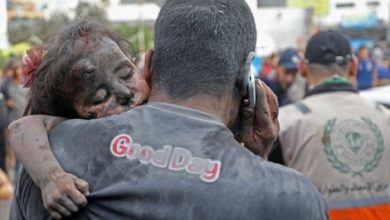Israel Halts Aid to Gaza After Ceasefire Phase Ends, Raising Fears of Renewed War
Netanyahu’s government blocks humanitarian aid to Gaza following Hamas’s rejection of a U.S.-proposed temporary truce.

Watan-The Israeli Prime Minister’s Office announced on Sunday that Benjamin Netanyahu has decided to halt all goods and supplies entering the Gaza Strip starting that morning. The decision came as the first phase of the ceasefire agreement ended and after Hamas rejected a proposal by U.S. envoy Steve Whitcoff for a temporary truce during Ramadan. Hamas called the decision a “cheap extortion, war crime, and blatant violation of the agreement.”
The move was made just hours after the first phase of the deal expired following 42 days of implementation. According to the Israeli Prime Minister’s Office, Netanyahu coordinated the decision with the U.S. administration in overnight discussions.
The statement explained that the measure was taken after Hamas refused to release additional Israeli hostages under Whitcoff’s proposal, which effectively extended the ceasefire without commitments or guarantees to end the war.
Does This Mean War Will Resume?
Israeli news outlet Ynet questioned whether Netanyahu’s decision signals a resumption of war. Following political directives, the Israeli military halted humanitarian aid deliveries to Gaza on Sunday morning and closed all border crossings and entry points to the Strip.
Netanyahu’s office justified the move, stating:
“In light of Hamas’s refusal to accept Whitcoff’s proposal for continued negotiations—which Israel had agreed to—Prime Minister Netanyahu has decided that, as of this morning, humanitarian aid to Gaza will stop. Israel will not allow a ceasefire without the release of our hostages. If Hamas continues to reject the proposal, there will be additional consequences.”
Late Saturday night, Netanyahu’s office announced Israel’s adoption of Whitcoff’s proposal, effectively reneging on the original ceasefire agreement signed with Hamas a month and a half ago. The proposal included a temporary ceasefire during Ramadan and Passover, following a security meeting led by Netanyahu and attended by senior officials.

Israel Claims Hamas Violated the Agreement
Netanyahu’s office defended Israel’s withdrawal from the ceasefire, claiming that Whitcoff suggested extending the truce because he saw no possibility of bridging the gaps between the two sides to end the war and believed more time was needed for further negotiations.
The statement alleged:
“While Hamas has repeatedly violated the agreement, Israel has not. Under the terms of the deal, Israel could resume fighting after 42 days if negotiations proved unfruitful. This clause was supported by a side letter from the previous U.S. administration and received backing from Trump’s administration.”
The Israeli government claimed it had accepted Whitcoff’s proposal to secure the return of the hostages, whereas Hamas continued to reject it. Netanyahu’s office stated that if Hamas changed its stance, Israel would immediately join negotiations on all aspects of the proposal.
What Was in Whitcoff’s Proposal?
According to Ynet, Whitcoff’s proposal—which was not publicly known until Saturday night—suggested a temporary ceasefire extension for 50 days. Under this plan:
- Half of the Israeli captives would be released on the first day.
- The remaining captives would be freed on the 50th day, provided Israel and Hamas agreed on a permanent ceasefire.

Far-Right Minister Calls for Escalation
Israeli Finance Minister Bezalel Smotrich welcomed the decision to halt humanitarian aid to Gaza, calling it an essential step to “eliminate Hamas or force its complete surrender.”
On X (formerly Twitter), Smotrich, leader of the Religious Zionism party, wrote:
“The gates of hell… Now we must rush to open them on the enemy, with the most deadly and swift force, until a decisive victory.”
He also emphasized that his faction remained in government to ensure such actions take place, a contrast to Itamar Ben Gvir, who previously resigned from his position as Minister of National Security.
Hamas Accuses Netanyahu of Sabotaging the Ceasefire
In response, Hamas condemned Netanyahu’s decision, stating that blocking humanitarian aid is “cheap extortion, a war crime, and a blatant violation of the agreement.” The group called on international mediators to pressure Israel to stop its punitive actions against over 2 million people in Gaza.
Hamas’s statement criticized Netanyahu’s announcement of adopting an American plan that contradicts the ceasefire deal, accusing Israel of:
- Dodging phase two negotiations of the truce.
- Attempting to impose political realities by force after failing militarily.
- Sabotaging the agreement for internal political gains at the expense of Israeli captives held in Gaza.
Hamas dismissed Israel’s claim that the group violated the truce, stating that Israel itself had repeatedly breached the agreement, leading to:
- Over 100 Palestinians killed since the ceasefire began.
- Blockage of humanitarian aid and shelter supplies to deepen the humanitarian crisis.
The group emphasized that the agreement’s 14th clause states that measures from phase one must continue into phase two, and mediators are responsible for ensuring negotiations continue toward a final deal.
Hamas called on the Biden administration to stop supporting Netanyahu’s policies, warning that any attempt to override Palestinian rights would fail. The movement reaffirmed its commitment to the full implementation of the truce in all its phases.

Gaza Media Office: ‘Israel Waging a Starvation War’
Gaza’s Government Media Office accused Israel of waging a “starvation war” by cutting off aid, warning that the blockade amounts to a war crime and ethnic cleansing.
The office urged mediators to pressure Israel to comply with the agreement, allow essential humanitarian supplies into Gaza, and ensure international intervention to stop the crisis. It also called for:
- A unified Arab-Islamic stance against Israeli actions.
- A strong international response to hold Israel accountable for its policies, which it labeled as crimes against humanity.
The humanitarian situation in Gaza remains dire, with over 2.4 million people relying entirely on aid for survival as economic activity remains crippled.






